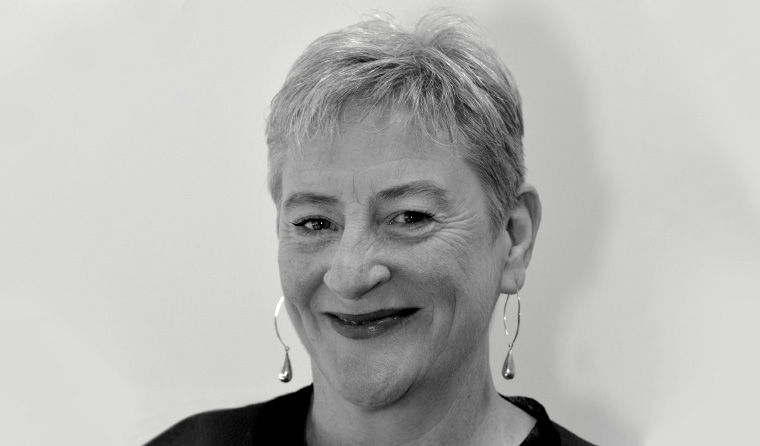News
Starting the conversation about eating disorders
The new MBS item numbers for eating disorders involve an assessment tool that helps GPs and patients examine a disease that is often hard to discuss.
 The new MBS items contain elements that may help facilitate useful conversations around eating disorder symptoms.
The new MBS items contain elements that may help facilitate useful conversations around eating disorder symptoms.
Eating disorders are complex, insidious diseases in which the struggles of the mind have a serious impact on the body.
‘The condition is a biological disorder with the risk of starvation and the risk of disease because of the eating disorder, but there’s also the mental health component and the social aspects,’ Dr Cathy Andronis, Chair of the RACGP Specific Interests Psychological Medicine network, told newsGP.
As the health professional most likely to have first contact with such patients, GPs have a key role in diagnosing eating disorders, and then in referral and continuing management.
However, the complexity of this particular disease group can make these tasks particularly challenging.
‘A lot of eating disorders can be incredibly debilitating and morbidity-causing without being necessarily recognised, because the patients themselves are often in denial, and so it just goes underground ,’ Dr Andronis said.
‘They can also be reluctant to have treatment, so it’s about slowly meeting these patients at a sensible meeting point.’
To help provide a complex response for a complex disease, the Medicare Benefits Scheme (MBS) created new item numbers for the treatment and management of eating disorders, effective from 1 November this year.
The new item numbers enable a stepped care approach to the treatment of eating disorders, in which patients with severe and complex eating-disorder presentations are provided access to up to 40 sessions of psychological treatment and up to 20 sessions with a dietitian every year under an Eating Disorder Plan (EDP).
A key aspect of the new model presented by the item numbers is the use of the Eating Disorder Examination Questionnaire (EDE-Q), an assessment tool designed to identify people experiencing eating disorders.
The EDE-Q has long been in use by mental health clinicians, but will be new to many GPs.
The tool is integral within the framework of EDP, with patients needing to score three or higher on the questionnaire to gain access to the new MBS item numbers.
 Dr Beth Shelton has found the EDE-Q easy to use and a helpful, sensitive tool by which to discuss eating disorder symptoms with patients.
Dr Beth Shelton has found the EDE-Q easy to use and a helpful, sensitive tool by which to discuss eating disorder symptoms with patients.
Dr Beth Shelton, a psychologist and the National Director of the National Eating Disorders Collaboration (NEDC), said the EDE-Q is easy to use and does not require any specific training to administer.
‘The questionnaire asks individuals to answer 28 multiple choice/one-word answer items about their behaviours and cognitions in the past month in relation to eating and body image,’ she told newsGP.
‘It is widely used, available in many languages and provides a lot of useful information in the assessment of people at risk of, or experiencing, eating disorders.’
Dr Shelton has also found the EDE-Q can provide a helpful way to discuss symptoms of the eating disorder, a conversation that can be otherwise difficult to initiate.
‘The EDE-Q, when scored, can be the basis of an interesting and useful conversation, as the individual considers how their responses compare to community norms,’ she said.
‘As a clinician, I find it an efficient and sensitive way to ask individuals about behaviours including restriction, bingeing, vomiting and compulsive exercise, and to assess the degree of their overvaluation of weight and shape.
‘It seems to help in establishing the client–clinician relationship, because the questionnaire indicates that the clinician understands eating disorders and the associated thoughts and feelings.’
Dr Andronis understands the new item numbers and the EDP represent quite a different form of treatment and care coordination that may take time for many GPs to understand. But she appreciates the fact it places GPs at the centre of their patients’ care and believes that, over time, her colleagues will come to perceive the new item numbers as positively as she does.
‘Hopefully GPs will embrace their role as coordinators and stay central to [the EDP], because we know patients for longer than most other specialists and have them for longer-term care. We’re also able to liaise with their families and other service providers,’ she said.
‘And some doctors can take the opportunity to upskill in eating disorders management themselves. That might be especially important for GPs in rural areas where services for eating disorders and access to psychiatrists and paediatricians are limited.
‘So it’s going to be quite a big role for GPs.’
Eating disorders MBS items MBS items for eating disorders Medicare Benefits Scheme
newsGP weekly poll
Which of the following areas are you more likely to discuss during a routine consultation?